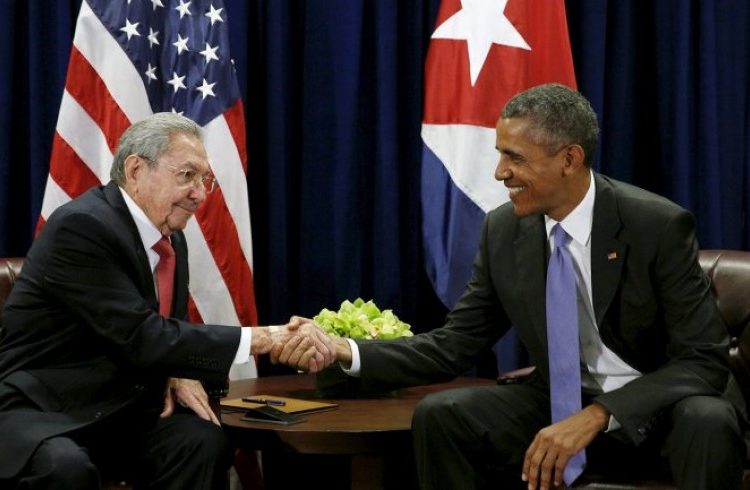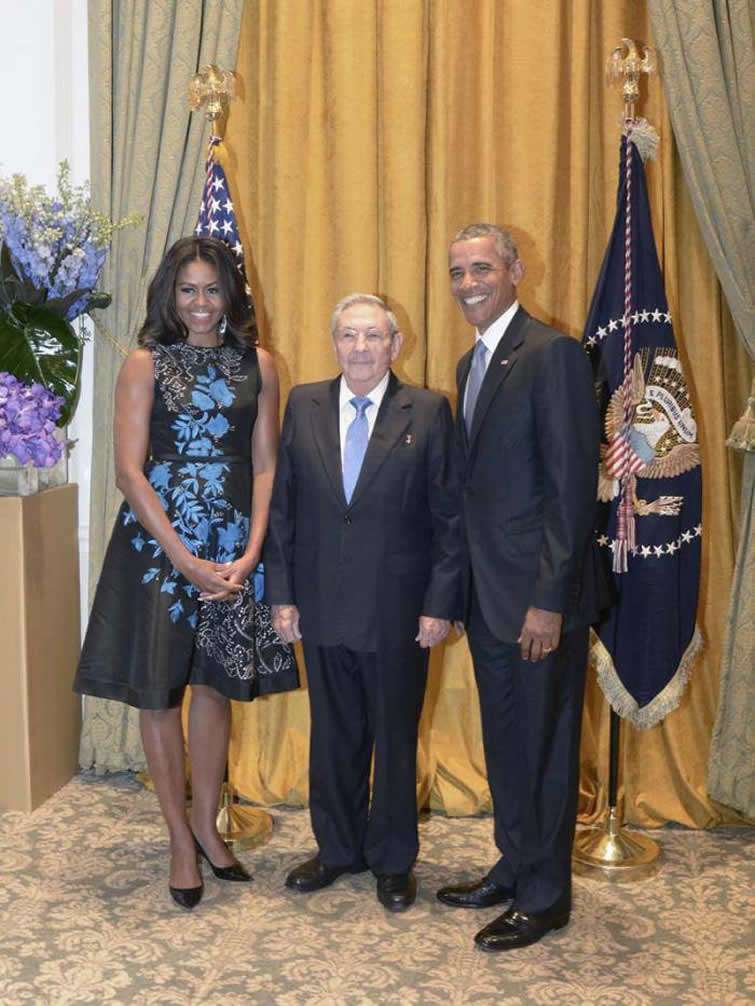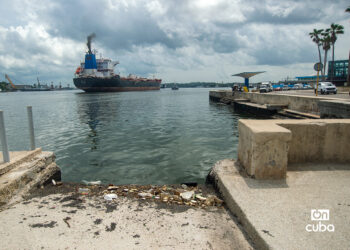A second official meeting between Cuban President Raul Castro and Barack Obama made headlines today, although this is the fourth time both presidents are face to face.
The previous night they talked briefly, at a reception Obama offered the heads of State attending the UN General Assembly in the United States, according to reports by Cuban state-run media outlets.
Although Raul Castro’s agenda was tight -the Cuban media continued to report- he took a few seconds to have his picture taken with Obama and the First Lady.
They looked happy in the picture, as if they had been friends their whole lives, or as if they would be willing to be as of now.
Today’s meeting was more relevant because it had been broadly announced in advance by the media following a release posted on the web site of the White House. Diplomacy and goodwill seem to be having a good run.
The three previous encounters between the two presidents –one in South Africa, during the funerals of Nelson Mandela; and two more in Panama City, during the Summit of the Americas– took place almost by chance, without time for the press to cover them with much anticipation.
This last meeting was the longest they have held so far. It took place a few hours before Obama sealed the inevitable end of the embargo during his speech at the General Assembly. “I’m confident that our Congress will inevitably lift an embargo that should not be in place anymore.”
On his part, Raul Castro once again highlighted the main issues about which Cuba has great expectations in the process of normalization of relations with its historic enemy.
“Now, a long and complex process begins toward the normalization,” said Castro in his speech, “that will only be achieved with the end of the economic, commercial and financial blockade; the return to our country of the territory illegally occupied by Guantanamo Naval Base; the cessation of radio and TV broadcasts, and of subversion and destabilization programs against the Island; and, when our people are compensated for the human and economic damages they still endure.”
Many other Americans approached Raul Castro to shake his hand, including GM and American Airlines executives, and former president William Clinton, who talked to Raul for around an hour.
There was no need for Clinton to personally convey the message his wife had already voiced in Miami about Cuba: the presidential candidate will continue to deepen and strengthen the rapprochement with Cuba, if she makes it to the White House.
Raul Castro considers that the recent measures taken in Washington are nothing but the fulfilment of what had been agreed in January 2015, and he expects that Obama uses his executive power to void the embargo.
Obama said that this change of attitude towards Cuba is part of a long term strategy: “Change won’t come overnight to Cuba, but I’m confident that openness, not coercion, will support the reforms and better the life the Cuban people deserve, just as I believe that Cuba will find its success if it pursues cooperation with other nations.”
“We will continue to stand up for human rights,” he added. “But we address these issues through diplomatic relations, and increased commerce, and people-to-people ties.”











